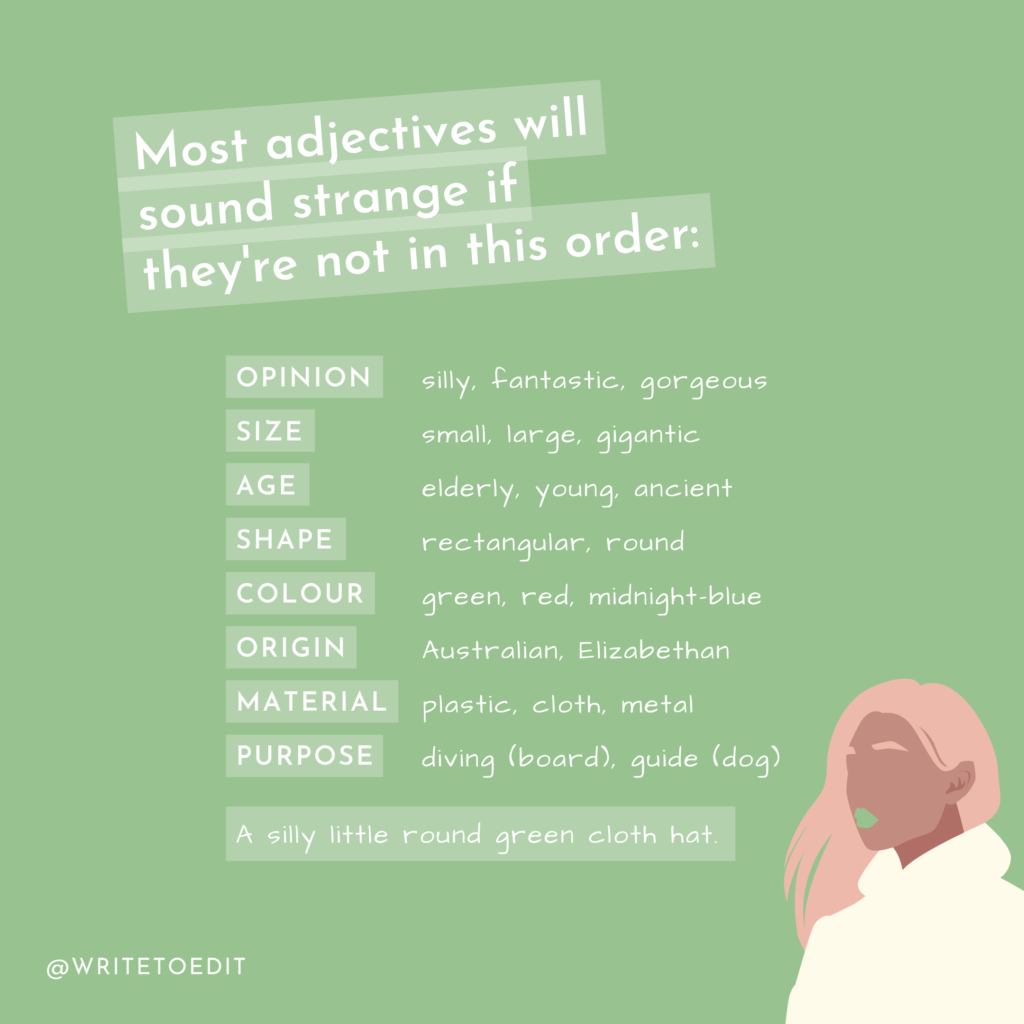
Here?s the unofficial order of adjectives before a noun:
- Opinion (silly, fantastic, gorgeous)
- Size (small, large, gigantic, minuscule)
- Age (elderly, young, ancient)
- Shape (rectangular, triangular, square, circular, round)
- Colour (green, red, midnight-blue)
- Origin (Australian, Elizabethan, Herculean)
- Material (plastic, cloth, metal)
- Purpose [diving (diving board), guide (guide dog), Wednesday (a Wednesday afternoon)]
Give it a go and see if it works. Here?s my example:
They bought me a gorgeous little old square green Australian cloth cricket cap.
That?s an extreme example, and you probably should never have that many adjectives before your main noun, but you get the picture. If I was to move any of the adjectives in that sentence, things start to seem off:
They bought me a little old square gorgeous green Australian cloth cricket cap.
Doesn?t work, does it?
Now, there are plenty of exceptions (this is English, after all), particularly with size, age, shape and colour, but mostly this comes down to whether it sounds right to your ear or not. There are no official rules, so don?t worry ? you can trust your gut on this one!
Nouns as adjectives and adjectives as nouns
Sometimes, words we would traditionally consider to be nouns can function as adjectives, and adjectives can function as nouns. You probably won?t notice this happening when you?re reading as usual, but take a look at these examples:
Have you ever seen a banana tree? (Normally, banana is a noun, but since it?s modifying the noun tree, in this sentence it becomes an adjective. What fun!).
Never scorn the widowed. (Normally, widowed would be an adjective, but in this case, since the noun it?s referring to is implied, the adjective becomes the noun).
There it is: the ultimate guide to adjectives.
Originally published at https://writetoedit.com/the-ultimate-guide-to-adjectives/